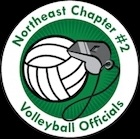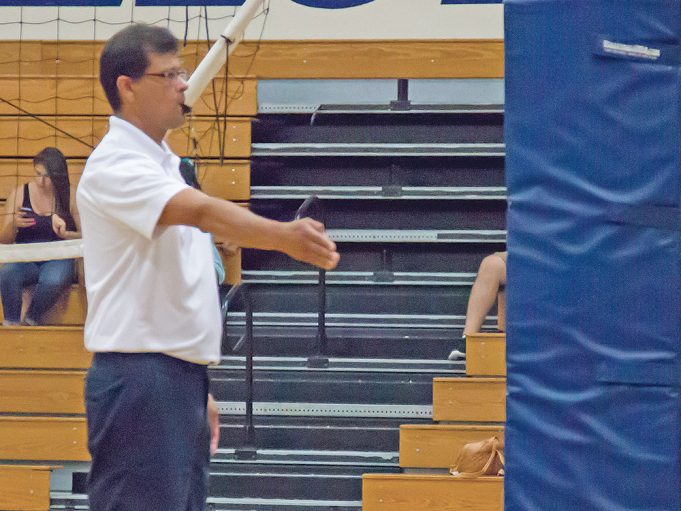Republished from Referee Magazine - September 10, 2025
By Michael Flowers

When people think of volleyball referees, they often imagine someone simply blowing a whistle and calling faults. Volleyball is no different in this perception — the official standing courtside or on the stand, raising a hand when something goes wrong.
But the reality is far richer. Referees are essential in ensuring the game runs smoothly, fairly, and safely. Beyond enforcing the rules, they set the tone, guide player development, and preserve the integrity of the sport. Having officiated countless matches, I can confidently say our role is far more than just calling errors — it’s about keeping the game in balance.
1. Set the Tone
From the first whistle, the referee establishes the atmosphere of the match. Players, coaches, and fans all take cues from the official’s demeanor. A calm, consistent approach communicates professionalism, while hesitation or aggressiveness can shift the entire mood.
I learned early in my career that firmness paired with clear communication builds trust. When players know the referee is fair, they can focus entirely on the game.
2. Ensure Fair Play
Rules keep the game grounded in fairness. In a fast-paced sport like volleyball, it’s easy for players to slip into habits that stretch the rules — from foot faults on serves to incorrect rotations. Every decision, no matter how small, shapes the match’s integrity.
I still recall a critical net violation call at match point early in my career. The pressure was enormous, but making the right call reinforced the idea that rules apply to everyone.
3. Think Safety First
Volleyball’s intensity brings risk — high jumps, quick reflexes, and fast collisions. Referees are the first line of defense in maintaining safety. That includes ensuring equipment is correct and halting play when situations look dangerous.
I’ve had to stop matches out of concern for players’ well-being, even when no rule was technically broken. In those moments, protecting athletes takes precedence over everything else.
4. Support Player Development
Officiating isn’t just about calling errors; it’s also about helping players grow. A whistle for a double contact or a net violation often sparks immediate adjustments in technique.
Over the years, I’ve had players thank me after matches for calls that made them aware of habits they hadn’t noticed. Referees, in this way, contribute directly to the evolution of the sport.
5. Stay Neutral and Professional
Perhaps the greatest challenge is maintaining composure amid the noise of competition. Coaches, fans, and players will all have opinions — sometimes loudly. The referee’s job is to remain steady, neutral, and professional no matter what.
Consistency earns respect and teaches everyone that respect for the game comes before everything else.
Conclusion
We do far more than blow a whistle. Referees are the backbone of every volleyball match: guiding the flow of the game, ensuring fairness, maintaining safety, supporting development, and upholding integrity.
The next time you raise your hand to call a fault, remember the importance of that action — it reflects the countless responsibilities wrapped into one role.



